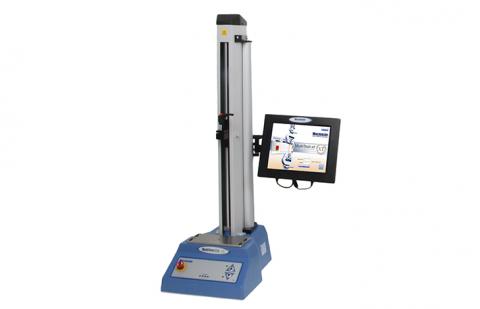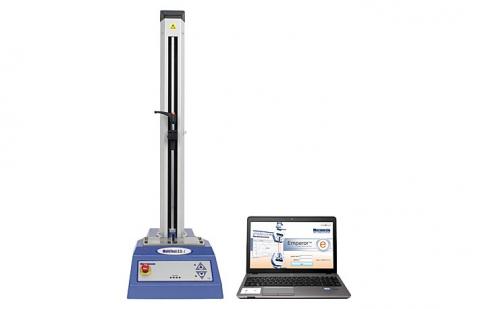Error message
Warning: file_get_contents(http://ipinfo.io/18.226.180.174/country): failed to open stream: HTTP request failed! HTTP/1.0 429 Too Many Requests in include_once() (line 656 of /home/closuretesting/public_html/sites/default/settings.php).Closure force testing methods
Snap-fit and hinged caps, and corks or stoppers, can be tested using standard methods with a force testing system. This removes the variability of simple user testing and applies controlled, repeatable parameters to each test. By testing to precise parameters and measuring the force profile, the complete characteristics of removal or opening by force can be examined and compared to acceptable tolerances.
On a production line, batch testing ensures timely machine adjustment and avoidance of wastage. Testing of isolated caps and stoppers by manufacturers is as important as testing closed containers, ensuring total consistency of supply.
Application force and removal force
Machine bottle-capping force can be directly measured by inserting test instruments of similar dimensions into the line, for example in attaching a metal crown cap, a T-cork (bar cork). A force tester can also be used to determine the optimal application force for plastic caps, for machine setting.
Testing for removal force depends on the nature of the closure, whether it is resealable, and whether the opening mechanism is separate from the closure fixing (for example, a snap fit closure with a flip cap).

sparkling wines, with pneumatic grips
Extraction force of corks and stoppers
Corks and stoppers are often directly pulled, though in use a twisting action may make opening easier. For testing corks, a direct pull uses a corkscrew attachment, or grip of a sparkling wine stopper, with the bottle held in a yoke or pneumatic grips. A Mecmesin CombiCork system can be used for this, equipped for measuring the breakaway torque whilst separating the cork from the bottle under tension.
Integrity of corks and stoppers
The tensile strength of corks, their compressibility and recovery, and the shear strength of cork stoppers, can also be measured by a programmable force tester with suitable fixtures.
Opening mechanisms and dispensers
Plastic closures are very widely used that employ easy opening and reclosing, and which are integral to a specific container design. Ease of opening, closing and of smooth operation can not just be tested as a single action, but for durability over an expected time span. Flip-top hinges should not break while the bottle is still half full, which may mean a hinge is too weak, or that the force to open is too great. Disc-top closures should click open and closed positively.
Sports-cap bottles often employ a security cover that is removed and discarded, strong enough to protect in transit, but easy to break by hand. Along with the push-pull opening, they are usually screw fit with a tamper-evident band, which can be torque tested. The push-pull feature is frequently operated by the teeth, so ease of opening is essential.
Plunge-top dispenser mechanisms incoporate a spring, and whilst these can be tested in their own right, it is often the plastic components that compromise performance, such as smooth action and return, when filled. Routine sample testing can be performed with a programmable system, over one or many cycles. For filled systems, containment will be required.
All of these tests can be performed under standardised parameters, often determined by the manufacturer as internal standards, using a programmable universal force tester. Mecmesin offers customisation services these closures often require for grips and fixtures that hold samples securely and align them accurately.
Separation force of TE bands

Screw caps with tamper-evident bands can be tested for bridge torque (the torque required to break the attachments by unscrewing), but in cap manufacture, the tensile strength of the attachments is a more direct quality test. This can be done by pushing the cap from the band, fitted to a test mandrel.
Tear-off bands can similarly be tested for ease and consistency of pull around the closure.
Closure force testers
Mecmesin's motorised, programmable, tension and compression testing systems offer the best control in terms of test repeatability, in which a library of test routines can be saved for any closure system design where an element operates or may fail by pull or push forces. We also supply standard fixtures and custom solutions.




